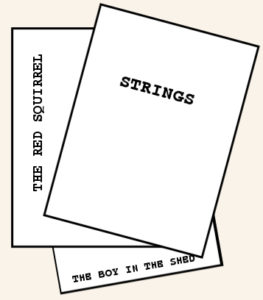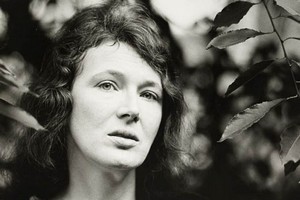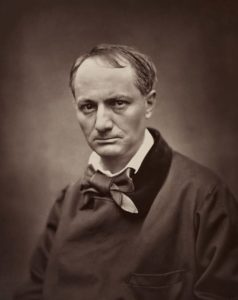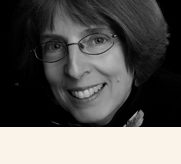
In the years since Brotherhood came out, I’ve written three novels that haven’t quite worked (at least, not yet). A year ago—at the start of 2019—I was sure that by December, I’d have a new contract and a release date to look forward to. But no. Such a bummer.
And when I’ve let this disappointment bring me down, all manner of self-doubt has flooded in. Will I ever get another novel out into the world? What about this blog? Once a month, every month, I’ve rambled here about the process of writing. Haven’t I already said everything worth saying?
Then the doubts snowball, and in an attempt to keep them from gaining speed, a different voice inside my head says I don’t have to do this blog or write another novel. I don’t ever have to write another word. I can quit any time I want. I’m in control of what I do and when/how much I write, and why don’t I just stop? Just go away and do something else?
And when I said all those words out loud, everything changed.

But I’m getting ahead of myself.
This month I signed up for a class on fairy tales, taught by screenwriter and playwright Doug Jones at the Visual Arts Center in Richmond, Virginia. Last week we discussed a short story by Angela Carter called “The Bloody Chamber” (published in the collection of the same name). Her story is a masterpiece of literary nuance and metaphor, and deep into the tale—inspired by Bluebeard—this line jumped out at me:
‘It is the key that leads to the kingdom of the unimaginable,’ he said.
The kingdom of the unimaginable.

Yes. In fairy tales (or “wonder tales”), full as they are of witches and beasts and curses and trolls and cannibalism and worse, storytellers give voice to the unimaginable.
And here’s the thing. Once we give voice to the unimaginable—once we consciously identify our doubts and fears—everything changes. We gain some measure of control over the daemons that plague us rather than the other way ’round. We have to speak the unimaginable, as fairy tales do, and not just whisper vague horrors but name them. Write them down. Call them out. Only then can we banish the devil and squash the troll and defeat the witch, and in the process, find our way. Begin to heal.

Charles Baudelaire said, “la plus belle des ruses du diable est de vous persuader qu’il n’existe pas” (the devil’s finest trick is to persuade you that he does not exist). Now, I don’t know how you interpret the word devil, but I know that for me, when I said, “I don’t ever have to write another word,” it was like a temptation—like the devil speaking directly to me. Saying the words out loud shone a floodlight on the monster—you don’t ever have to write again—NeverWriteAgain!—and in the glare, I blinked and the daemon shrank and all I wanted to do—more than anything in the world—was write. Forget publishing. Forget agents and editors and marketing teams and industry gatekeepers. Forget the business of it all. I just wanted to write.
I need to write. Something about the process of writing centers me. Connects me with a presence—a force—that is greater than I am. It makes me feel whole. It fills me with gratitude that this—this writing practice (or discipline, as some call it)—this is the life I’m living. The life I get to live. How incredible is that?
I think I must be the luckiest person on the planet.

I love this, and I needed it today.
Thank you for reading. I really sweated over what I was going to say this month. I’m glad it resonated with you.
Anne, thank you for having the courage to write this. I’ve been dealing with self-doubt also, which has made writing difficult. 😟
Glad you discovered that class on the fairy tale. I love fairy tales!
I’m reminded of some advice Mary Quattlebaum gave me–“Play.” Writing hasn’t felt like play in quite a while. Writing a fairy tale seems like play to me now. 😀
You know, I think one of the reasons I signed up for the fairy tales class was that I wanted to play, although when I signed up, I’m not sure I was conscious of that reason. I remember thinking that I wanted to study the structure of stories and gain a better understanding of primal archetypes. But here I am — week after week — playing. Reading lots of little stories and writing little tales. Having fun! Yes. Words of wisdom from Mary Quattlebaum. Thank you for sharing these thoughts!
I love this, Anne. And your point about calling out the vague horrors or self-doubts reminds me of “Rumpelstiltskin.” Once the protagonist names him, he loses all of his power over her.
I’m glad you’re enjoying the class!
Oh, yes — Rumplestiltskin! Naming him was exactly what that story was about. Thanks for teaching such a fun class.
Thank you for this honest and thoughtful piece. Like you, I have three complete or nearly-complete skeletons (along with a pile of proposals and picture books). Mine are titled ANTS GO MARCHING, THE HOUSE OF SILENCE, and EYES OPEN. What liberated me to write was the idea that I could self-publish and that I had no greater way of self-publishing and reaching out to my readers directly than through my blog. I always look forward to your blog too!
Whatever liberates us to write — it matters. And these titles — I love them, Lyn. Happy writing!
Thank you Anne, it always helps to know you aren’t alone and all writers go through self-doubt! It is part of our process for sure, and that moment of coming back to our work no matter what reminds us that the end result is not the contract, but the work, and who we become by bringing ourselves back to the work.
“Who we become…” So true, Meredith! I am a different person for having researched and written these stories. Two required a lot of research and soul searching and one — the squirrel story — is what I’ve recently returned to, now that I’m taking this class on fairy tales. I’ve started over with a new voice — a different way to enter into what-all’s going on — and I’ll just have to see if it resonates with beta readers. Ahhhh… the process. I do love the process.
Great to hear from you!